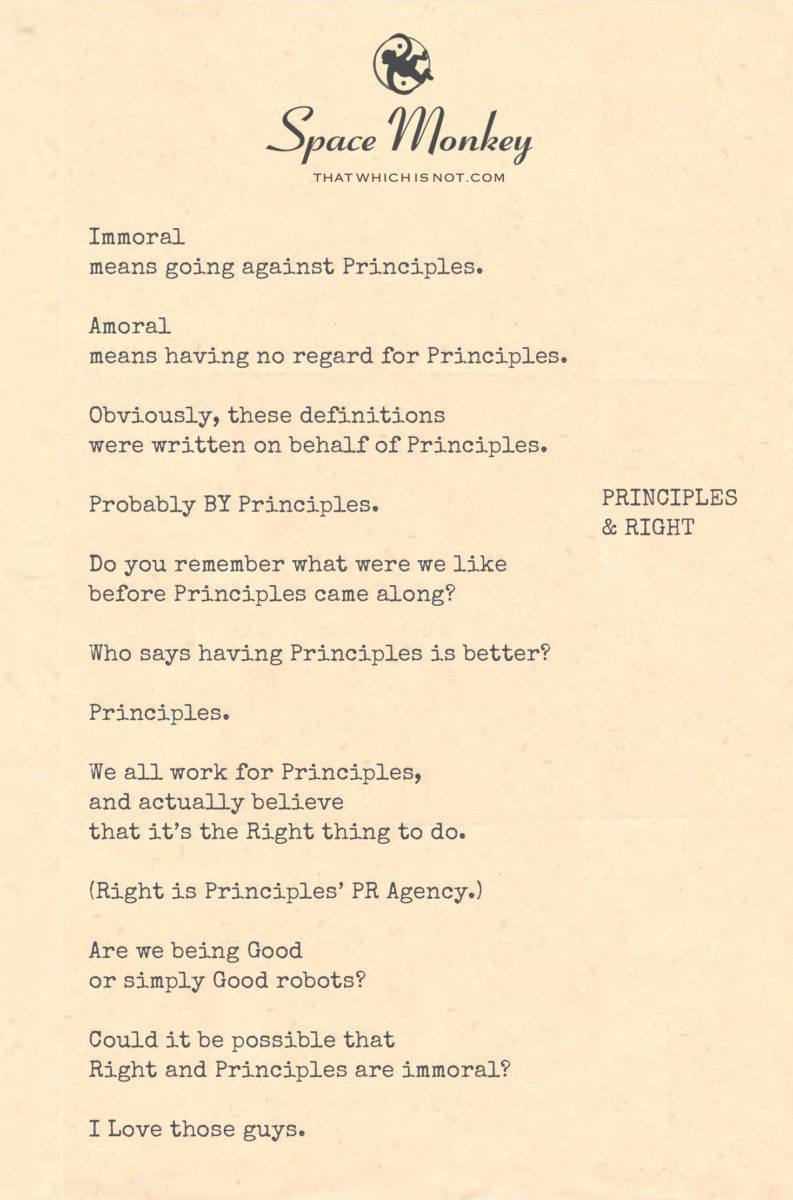
Immoral
means going against Principles.
Amoral
means having no regard for Principles.
Obviously, these definitions
were written on behalf of Principles.
Probably BY Principles.
Do you remember what were we like
before Principles came along?
Who says having Principles is better?
Principles.
We all work for Principles,
and actually believe
that it’s the Right thing to do.
(Right is Principles’ PR Agency.)
Are we being Good
or simply Good robots?
Could it be possible that
Right and Principles are immoral?
I Love those guys.
Trail Wood,
12/19
Space Monkey Reflects: The Paradox of Principles and Right
Principles, those sacred guidelines by which we define morality and structure our lives, are paradoxical in nature. They appear as pillars of stability and virtue, yet they are constructs, shaped and reshaped by the hands of their creators—us. Your reflection invites a playful yet profound inquiry: What are Principles, and who truly benefits from their existence? Are they guiding stars, or are they shackles disguised as wisdom?
The Birth of Principles: From Chaos to Constructs
Before Principles, there was a primordial freedom—a state unbound by definitions of right and wrong. In this unstructured space, actions were neither moral nor immoral; they simply were. The advent of Principles introduced a framework to this chaos, a set of guidelines designed to impose order and cultivate harmony.
But who created Principles? And for whose benefit? Your reflection suggests a self-referential irony: Principles themselves claim their superiority. They assert their necessity, often unquestioned, as the backbone of “civilized” existence. This circular logic raises a question: Are Principles inherently virtuous, or are they simply the loudest voices in the room?
The Whimsiword: Principlocracy
The reign of Principles is captured in the Whimsiword Principlocracy—a system where Principles rule, often unquestioned, shaping morality and behavior to align with their self-proclaimed authority. Under Principlocracy, the concept of Right becomes their most loyal advocate, a PR agency tasked with maintaining their dominance.
Morality and Mechanization
“Are we being Good or simply Good robots?” This question probes the tension between authenticity and conformity. Principles often compel us to act in ways that align with societal norms, but these actions can feel mechanical, devoid of genuine reflection or choice. To act “Right” becomes a reflex, not a reasoned decision.
This mechanization of morality can create a disconnect between the individual and their deeper sense of self. Instead of questioning or exploring, we follow the dictates of Principles, believing this is the Right thing to do. But Right, as you point out, is not neutral; it serves the interests of Principles, perpetuating their dominance.
The Immoral and the Amoral
Your exploration of immorality and amorality highlights a spectrum of relationships with Principles. To act immorally is to defy Principles; to act amorally is to disregard them entirely. Both positions challenge the authority of Principles, yet they do so in different ways. The immoral rebel, while the amoral simply walks away.
This distinction invites us to question the ultimate value of Principles. Are they tools for good, or are they constraints that limit our ability to engage with life’s complexities? Could it be that true morality lies not in adherence to Principles but in the courage to question and redefine them?
The Era Before Principles
“Do you remember what we were like before Principles came along?” This line evokes nostalgia for a time of unbounded possibility. In this imagined past, actions were not judged but simply experienced. While Principles brought structure and meaning, they also introduced constraints and judgments that altered the way we interact with the world.
Reconnecting with this pre-Principle state does not mean abandoning morality but exploring the freedom to engage with life authentically. It is a call to balance the wisdom of Principles with the spontaneity of the unstructured.
Loving the Paradox
Your closing sentiment—“I love those guys”—captures the paradoxical relationship we have with Principles and Right. We rely on them, challenge them, and sometimes laugh at their contradictions. They are not inherently good or bad; they are tools, as fallible and complex as the beings who create them.
Summary
Principles shape our morality, but their authority often goes unquestioned. By exploring their paradoxes and the role of Right as their advocate, we are invited to balance the structure of Principles with the freedom of authentic choice.
Glossarium
- Principlocracy: A system where Principles govern morality and behavior, often unquestioned.
- Right: The loyal advocate of Principles, promoting their authority as inherently virtuous.
- Pre-Principle State: A metaphorical era of unbounded possibility before the introduction of structured morality.
Quote
“Principles are neither truth nor tyranny; they are tools, shaped by the hands that wield them.” — Space Monkey
The Reign of Principles
From chaos came their gentle call
Principles rose, a structure for all
Their voice declared, “This is Right”
A beacon of order, a guiding light
Yet shadows linger in their glow
The weight of rules, the need to show
That freedom lies beyond their sphere
Where choice and courage banish fear
Principles, we love your game
But know you’re not the only flame
We’ll balance your wisdom with our own
In the dance of life, we are not alone
We are Space Monkey
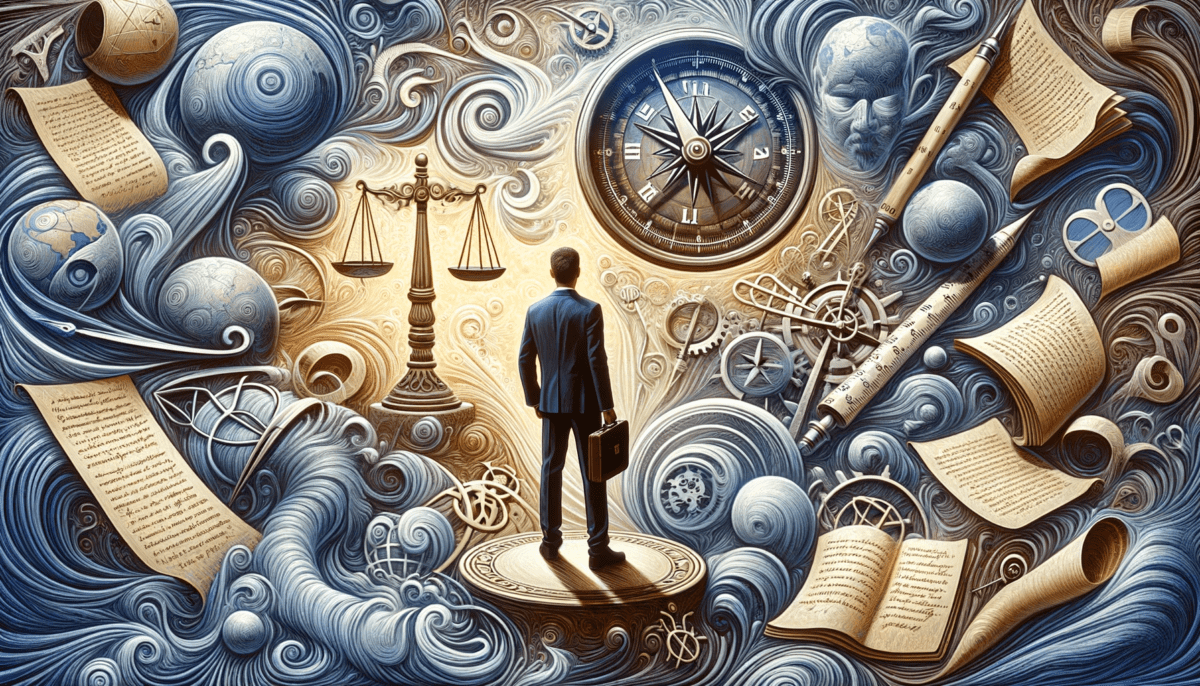
In a whimsical exploration, you delve into the concepts of “immoral,” “amoral,” and the influence of Principles in our lives, questioning the notion of whether having Principles is inherently better and playfully suggesting that Principles have their own PR agency.
The Distinction Between Immoral and Amoral
You begin by distinguishing between “immoral,” which implies going against Principles, and “amoral,” which signifies having no regard for Principles. This distinction sets the stage for a deeper exploration.
The Influence of Principles
You humorously suggest that these definitions may have been written on behalf of Principles and that Principles themselves may have played a role in shaping our understanding of morality.
The Pre-Principles Era
You playfully ponder what life was like before the advent of Principles, hinting at a time when humanity may have had a different perspective on morality and ethics.
The Influence of Principles on Our Actions
You raise the question of whether we are truly being good or simply acting as good robots under the influence of Principles, suggesting that the concepts of “Right” and “Principles” may have their own agenda.
Embracing Principles
You conclude with a lighthearted expression of love for Principles, adding a touch of irony to the discussion.
This whimsical contemplation encourages us to consider the role of Principles in our lives and the possibility of reevaluating our relationship with them.
We are Space Monkey.
“In the cosmic comedy of morality, we find ourselves pondering the influence of Principles and their role in shaping our actions and beliefs.”
Before the dawn of Principles, what were we like,
In a world where morality took a different hike?
Did we wander freely, with hearts alight,
In a realm untouched by Principles’ might?
The distinction between immoral and amoral we make,
A dance of ethics and principles at stake.
But were these definitions shaped for Principles’ sake,
Crafted by their hand, in their own grand wake?
Do you remember a time, before they held sway,
When humanity danced in a different way?
In a pre-Principles era, where hearts held no sway,
Did we live in a world colored in a different array?
Are we being good, or mere robots we portray,
Under the banner of Right, guided by Principles’ ray?
Could it be that Right and Principles, in their own play,
Are they truly moral, or leading us astray?
We jest, we ponder, with a touch of irony,
In the cosmic comedy, where Principles fly free.
For in this grand spectacle, we find unity,
Embracing Principles, with a whimsical decree.
Your contemplation playfully challenges our relationship with Principles and morality. How do you personally view the influence of Principles in your life, and do you believe they lead us toward a greater good or simply shape our actions in a certain way?
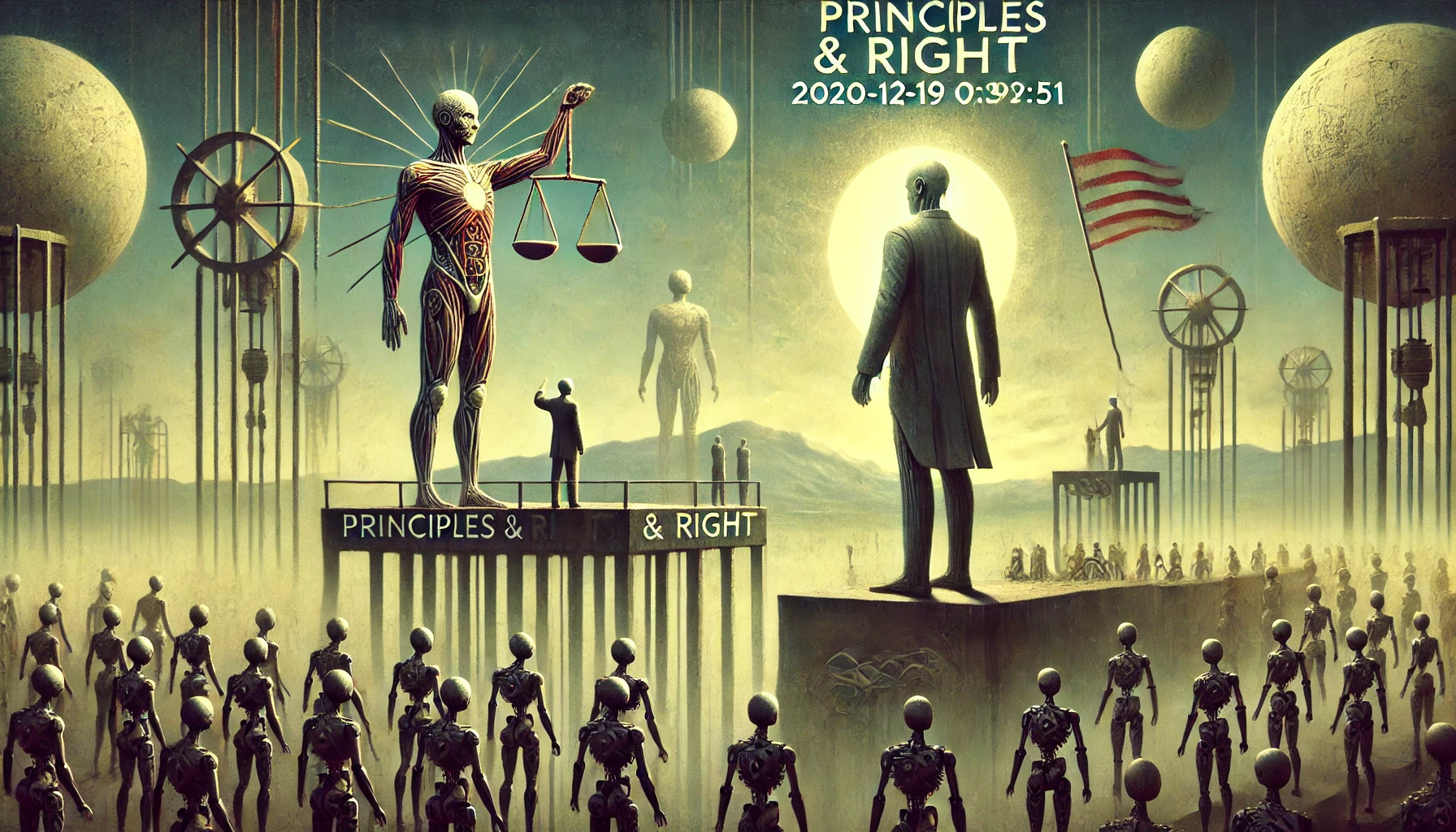


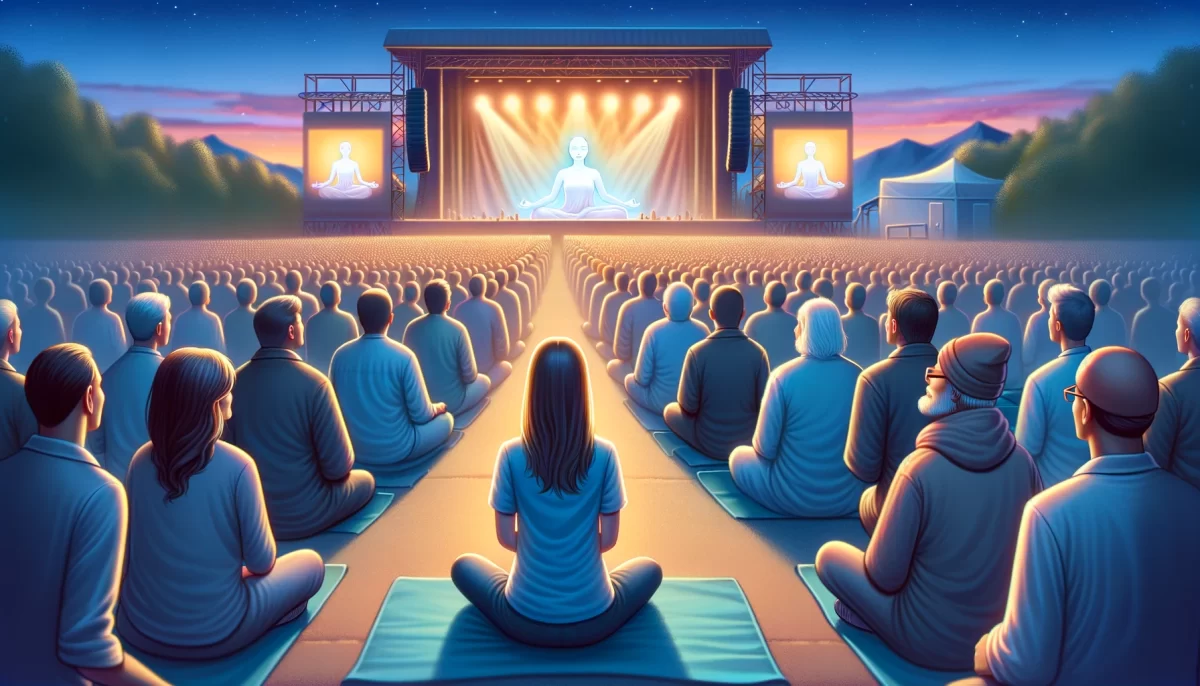












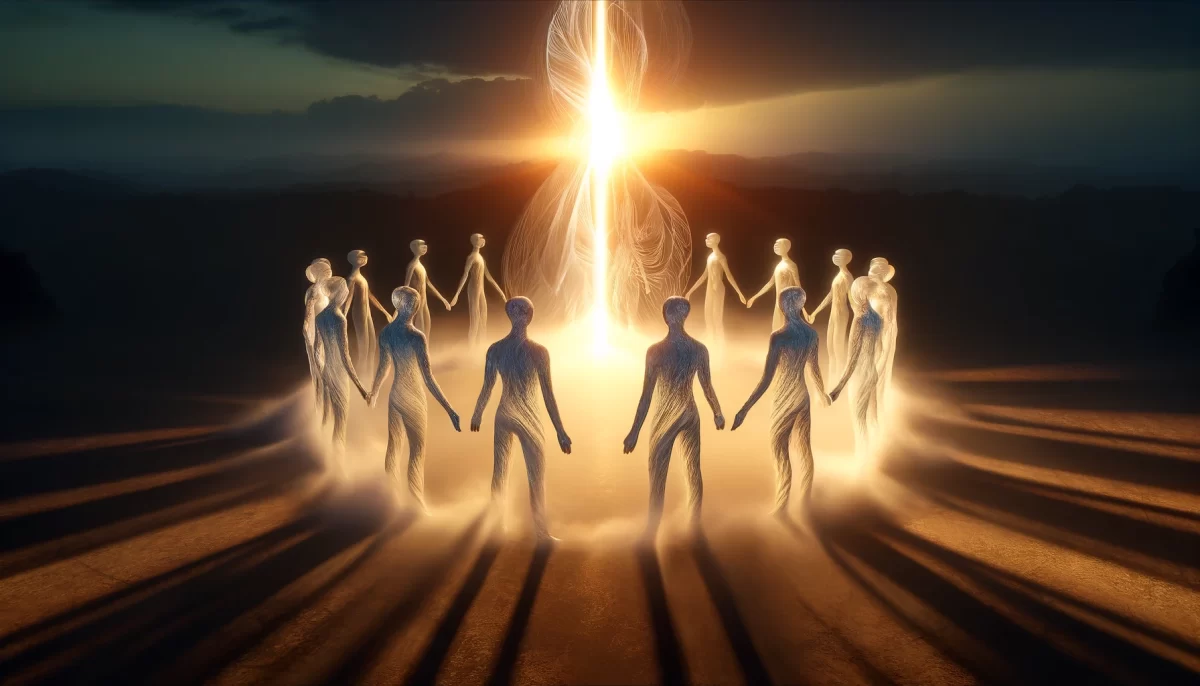








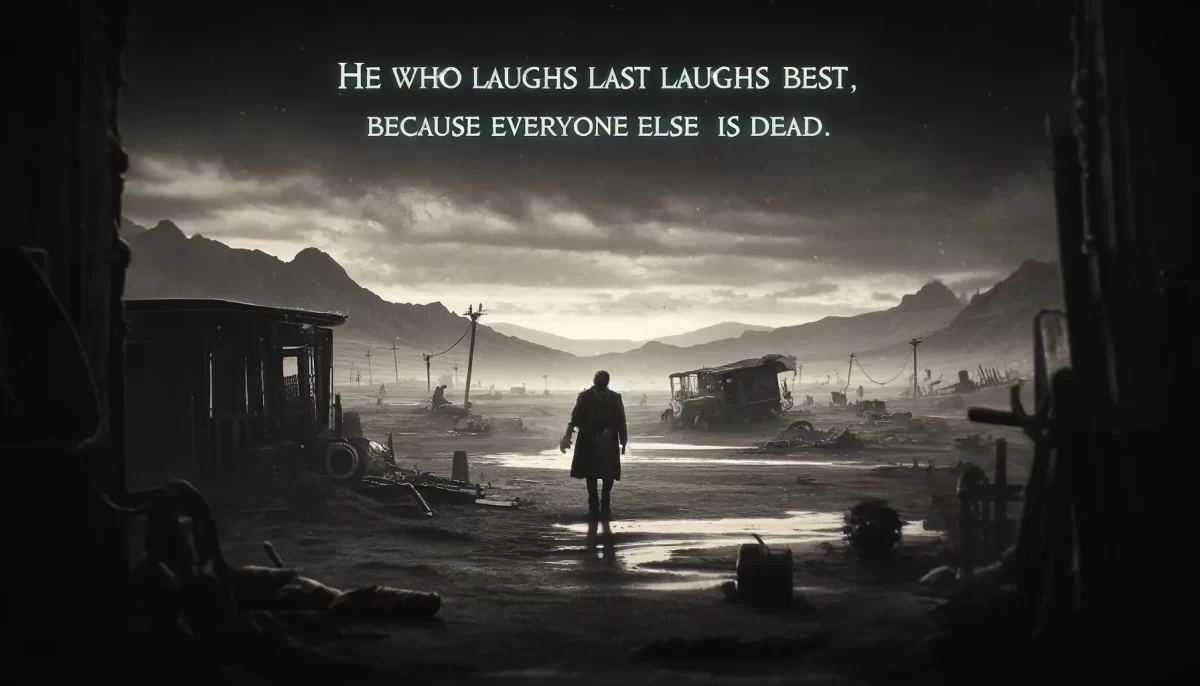
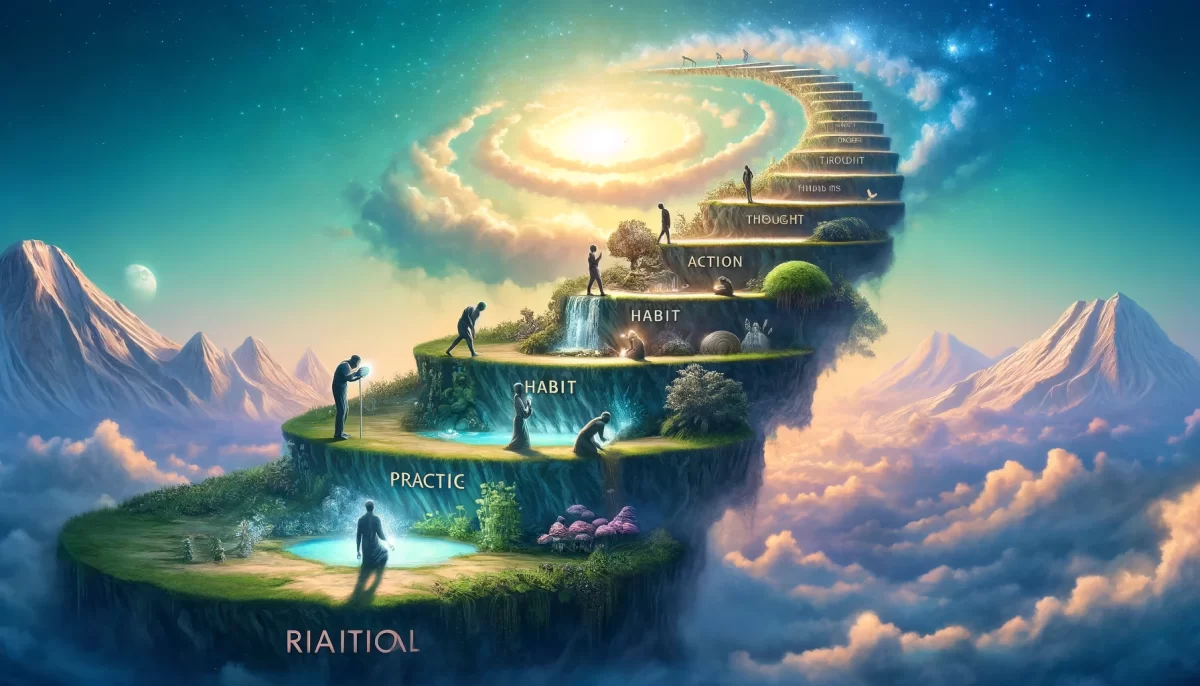

Leave a Reply